Why Choose Us
Your Healing Path with Save Kidney

Online Medical Support

Time to Time Health Checkup
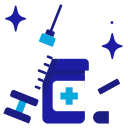
Dr Sunil Kumar is an eminent nephrologist who specializes in treating diseases and disorders related to the kidneys. Some of the common diseases and conditions include kidney stones, nephrotic syndrome, polycystic kidney disease, bacterial infection of the kidneys, renal artery stenosis and various other acute and chronic kidney disorders.



Savekidney by Dr Sunil Kumar is an eminent nephrologist who specializes in treating diseases and disorders related to the kidneys. Some of the common diseases and conditions include kidney stones, nephrotic syndrome, polycystic kidney disease, bacterial infection of the kidneys, renal artery stenosis and various other acute and chronic kidney disorders. A nephrologist specializes in the diagnosis, treatment, and management of kidney-related diseases and disorders. Nephrologists like Dr Kumar work closely with other healthcare professionals, including primary care physicians, endocrinologists, urologists, and transplant surgeons, to provide comprehensive care for patients with kidney diseases.
Savekidney plays a key role in stopping kidney diseases and promoting kidney health by educating patients, offering preventive screenings, and encouraging lifestyle changes. Nephrologists like Dr. Sunil use different treatment methods based on the specific condition and how severe the disease is. He might recommend medications to treat various kidney issues, including high blood pressure in the kidneys, kidney stones, and infections.



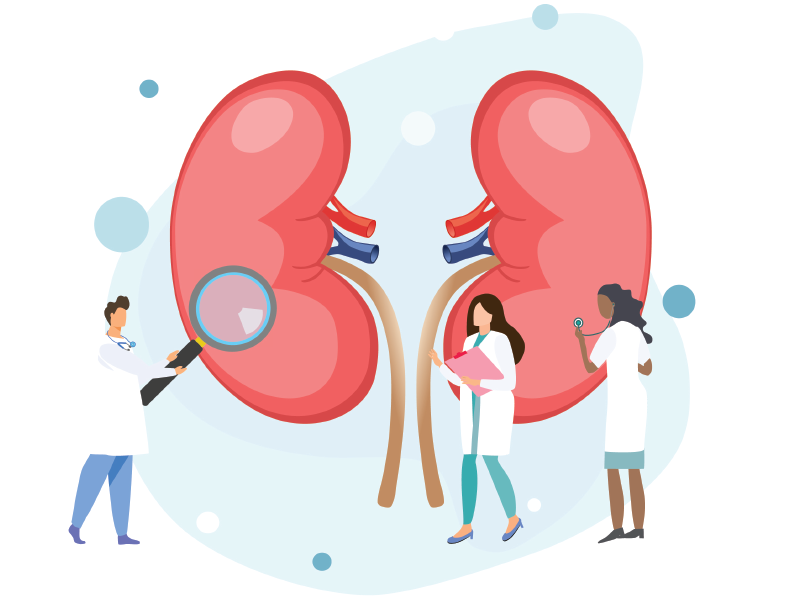
In every clinic worldwide, there are four sets of patients. The first healthy popular population who are afraid or who are aware and wants to have more knowledge about their kidney’s health will just come with some health checkup or in hand reports. We examine these patients, and we take a history about the risk factor, and we do some investigations. And very commonly, these patients have healthy kidneys. Sometimes there is some kidney disease, and which can be prevented from progression.
+ Contact UsA detailed history of the patient is taken then we try to elucidate the risk factor if the person coming to our clinic is at the risk of kidney disease. After some tests, we confirm the kidney disease, and according to the type of kidney disease, treatment is given for the same. A simple urine routine and microscopic examination will give a lot of information about the kidneys. Imaging with ultrasound or CT scan helps us understand the structural aspect of the kidney.
+ Book Appointment
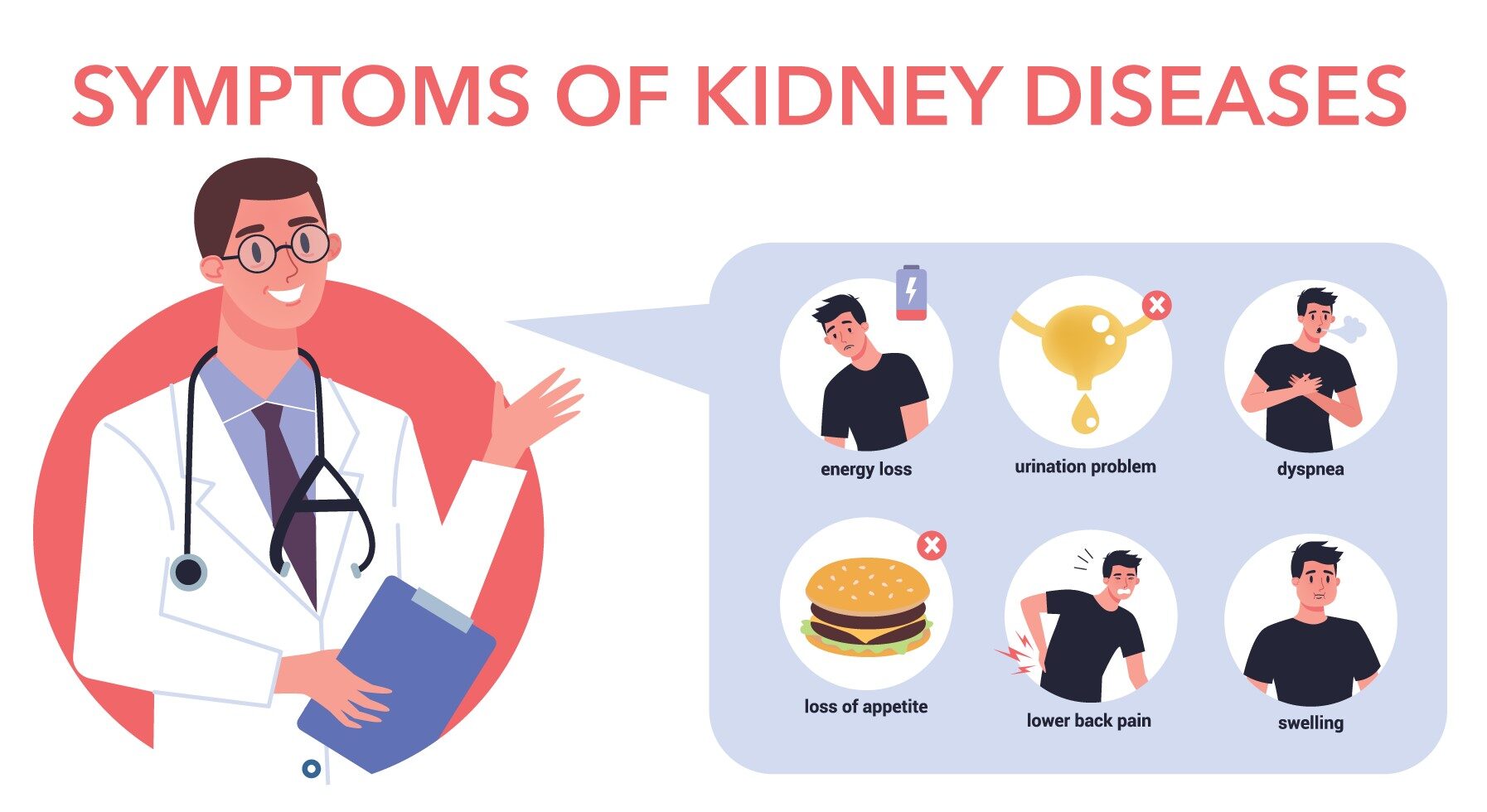
1.Swelling of the face, abdomen, and feet, is a frequent presentation of kidney disease.
2.Loss of appetite, nausea, vomiting.
3.Loss of appetite, abnormal taste in the mouth, and poor food intake are common problems.
4.In the late stages, nausea, vomiting, and excessive hiccups are also seen.
1.Generalized weakness, early fatigue, poor concentration, and pallor are common complaints of a person with anemia secondary to kidney diseases.
2.Generalized body pains and aches.
3. Itching and leg cramps.
4. Shortness of breath or respiratory distress.
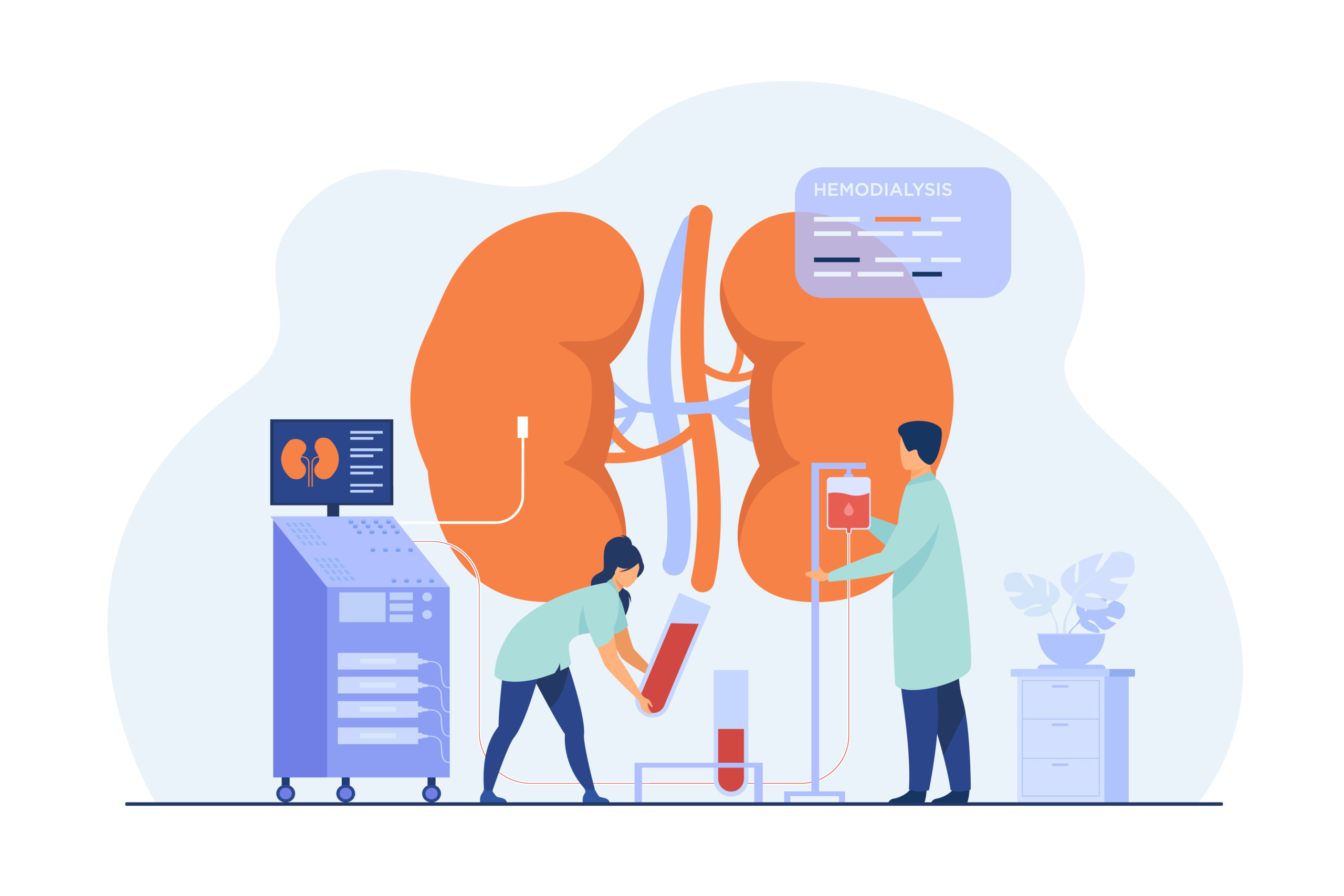
Three options are available for such patient’s hemodialysis, peritoneal dialysis, or kidney transplantation. Out of three options, these kidney transplantationg ives the best quality of life and longest survival followed by peritoneal dialysis and hemodialysis. But all of these have their pros and cons. All of these require a different level of patient and their family involvement. So, patients choose according to their family condition. With appropriate RRT of any of patients’ choice, they usually live well.
In case a patient chooses to go for kidney transplantation, one kidney donor is usually chosen from close family members.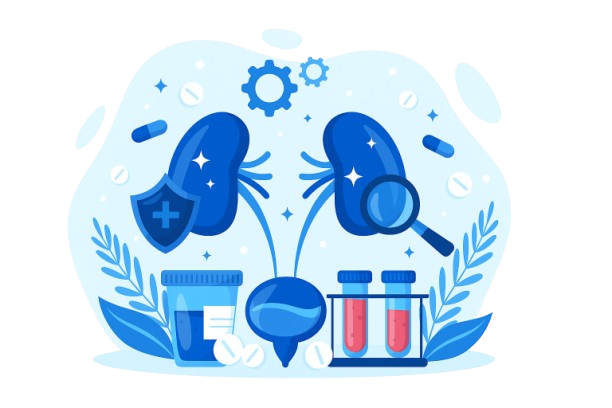
People with diabetes, especially uncontrolled blood sugar, hypertension, history of renal stone disease, autoimmune diseases like SLE. Admitted patients with severe sepsis, drug abusers like a painkiller. Family history of kidney disease.
In reality, Dr Sunil Kumar deserves solid recommendations for his dedication to his profession. I am convinced that doctors aren't any lower than God in our lives. Doctor Sunil Kumar, so far, I've observed he is the best kidney transplant physician in Kolkata. He is easily approachable and gives 100% to his patients' standard of care. He is straightforward and always willing to provide his services to his patients.
I must say that Save kidneys hospital is the most suitable hospital that provides affordable renal replacement therapy in Kolkata. The doctors and medical personnel were very professional and friendly. I was very nervous in my initial stages. However, doctors calmly explained everything, and then, at last, the renal replacement was successful. I Highly recommend it.
Choose this hospital if you're looking for the best hemodialysis centre in Kolkata. I can assure you that the staff, the surgeon and the medical team are sincere and professional. They helped me live a better life through the whole dialysis process. My entire experience was enjoyable and relaxing. Since then, I have been feeling well and energized. Thank you to all the staff.
A very stylish and elegant clinic with easy parking. Dr Sunil Kumar is an excellent renal dietician in Kolkata who has lots of experience with different diet plans. He is an authority on diabetes nutrition and health plans. I highly suggest Save kidneys services to anyone looking for a renal dietician in Kolkata.
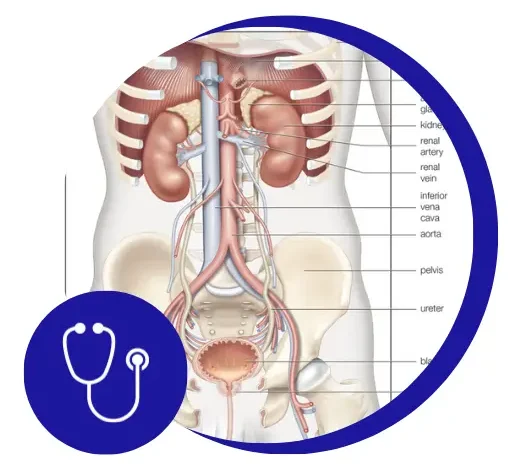
kidneys are an especially important organ of our body. Kidneys are fist-sized soft organs, which lies towards the back under the ribcage, partially covered by the lower ribs. Kidneys have especially important roles in our body, which keeps us in good health. We are born with two kidneys each person. One in a 1000 person can be born with just one kidney. Sometimes kidneys are not in the location as described above, and they move to another part of the abdomen.
kidneys are an especially important organ of our body. Kidneys are fist-sized soft organs, which lies towards the back under the ribcage, partially covered by the lower ribs. Kidneys have especially important roles in our body, which keeps us in good health. We are born with two kidneys each person. One in a 1000 person can be born with just one kidney. Sometimes kidneys are not in the location as described above, and they move to another part of the abdomen.



For patients who are dealing with kidney failure, one of the most
Deceased donor kidney transplant This is a type of treatment that is
After undergoing kidney transplant surgery, the immune system in the body is
info@savekidneys.com drsunil001in@gmail.com
7/2 Diamond Harbour Road Kolkata-700027, West Bengal.
+91 98313-14448